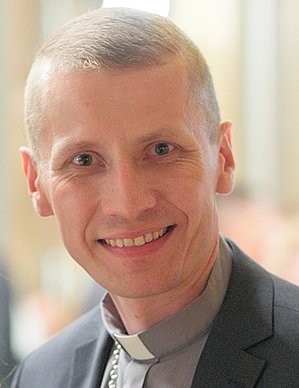Philanthropy as the most profound affirmation of human existence
Author: pastor Jānis Cepurītis, graduate of the UL Faculty of Theology, the UL Foundation scholarship holder
The practice of philanthropy is an essential part of Western civilization’s foundations. The achievements prompted by philanthropy in science and education are largely due to its ethos. Historical research reveals that philanthropy as a process involves both secular and religious motives. The author particularly focuses on the religious aspects of philanthropy.
The deepest essence of giving, or philanthropy, is one of the subconscious voices, which, when heard and responded to, brings mutual benefits – both to the giver and the recipient.
Philanthropy as a social and simultaneously spiritual phenomenon has a very long history. Demetrios J. Constantelos, a professor of religion and history, specializing in the study of the ancient Greek cultural space, points out that the concept of philanthropy comes from the Greek concept philein ton anthropon, which means love toward a human being. The early use of this concept is contributed to the author of the Greek tragedy Aeschylus. Historical research suggests that in ancient Greece, philanthropy was a cultural phenomenon that permeated political and civil society. In Plato's texts, on the other hand, philanthropy is described as a concept characterised by a state of being "productive of benefit" to humans. The axis of philanthropic history also includes the Byzantine emperor Justinian (482–565), in whose lifetime philanthropic organizations began to receive generous gifts and bequests, and at the same time enjoying imperial tax rebates. Over time, this favourable attitude even earned the emperors a special title of philanthropist. These historical circumstances of fiscal immunity later defined the ethos of philanthropy throughout the Western world. Perhaps this particular factor helped the Christian world to transform the universal nature of philanthropy into a cornerstone of Western society.
Much of the cultural and educational heritage would not be possible without philanthropy, without private and very personal material involvement. It is, then, a human part in the metaphysical structure of the world that does not submit to progress or change in values, but remains trustworthy at the level of subconsciousness. Philanthropy occurs in a variety of religions, cultures and political contexts.
The paradigm of Christianity is also dominated by a core of specific values that govern the treatment of secular property. The principles of voluntary giving (gifts of love) prevail in both Judaism and Christianity. The texts of the Old and New Testament also speak of selfless philanthropy that gives not out of duty but out of love. At all times, in understanding philanthropy, religious motives are associated with achieving a particular spiritual state determined by the giver himself.
The University of Latvia can also be proud of its patrons, whose contributions to science have given Latvia a number of world-class scientists and specialists. Their involvement, as they become patrons of the University of Latvia, is most directly based on the formation of macro-relations, advocating for excellence and an educated society.
Philanthropy provides an opportunity to free a person’s true essence through applied virtue – the joy of giving by investing in the future of an educated society. A university with a respectable history of philanthropy is invariably a model of macro-relations. In the life of each patron, the external resources have been outweighed by certain internal – subconscious – conditions that compel crossing the threshold of individualism and enable a person to rise beyond micro-relations to fulfil oneself in a much broader context.
The tradition of philanthropy engendered at the University of Latvia has become a model of purposeful and competent education and excellence. The university can truly pride itself on its patrons, whether they live in Latvia or have settled abroad. These supporters are not divided into close and distant ones, all of them hold their alma mater close to their hearts. Their names are a current part of today and tomorrow, never to be relegated to past. To be a patron of the University of Latvia means to continue the applied virtue of philanthropy – this is an action of timeless value.

 Academic Centre
Academic Centre